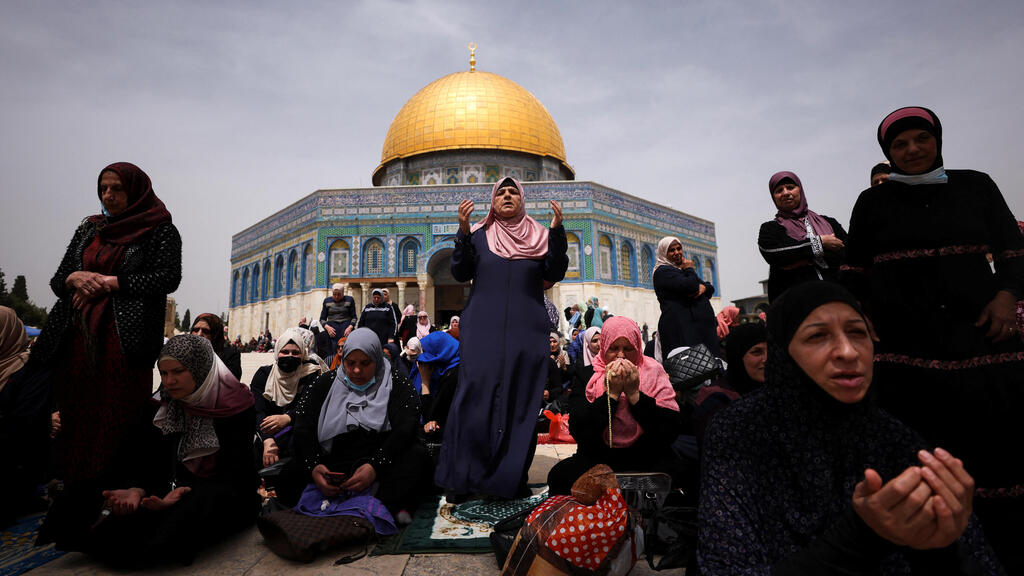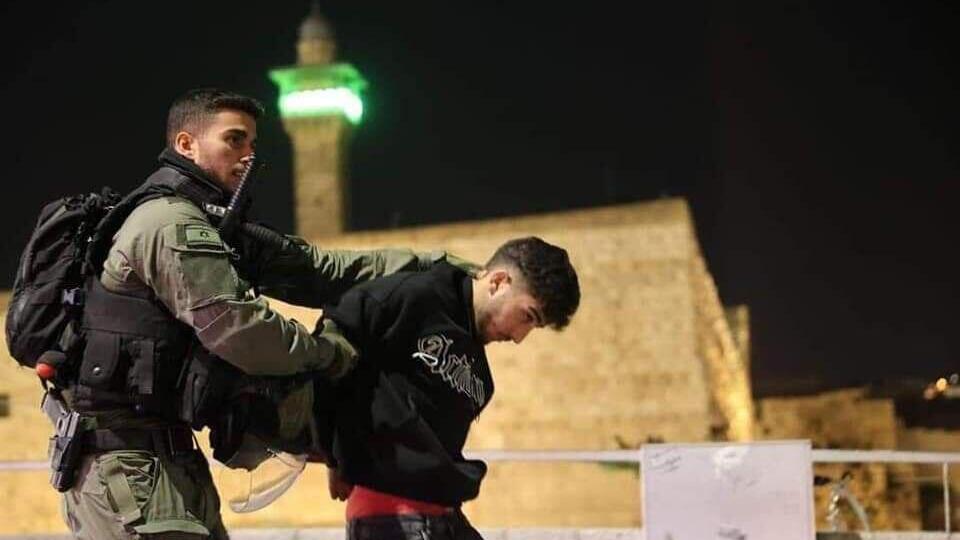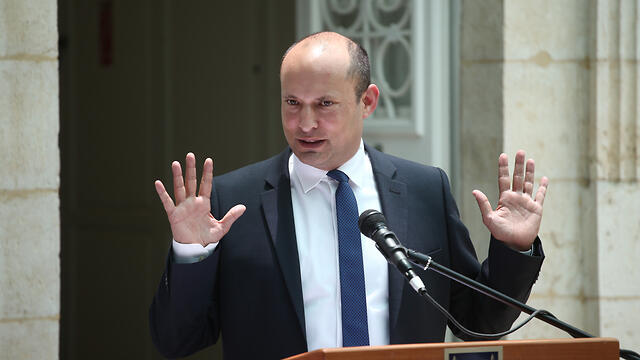While Islamist Palestinians on the Temple Mount provoke violence with Israeli police, it is Jordan that is caught in the middle.
Related Stories:
During a summit of Israeli, Jordanian, and Palestinian Authority security officials in Aqaba in February, Israel agreed that Jews would not be allowed to ascend to the Temple Mount during the last ten days of Ramadan.
A very senior official in the Palestinian Authority, who took part in the political and security summit, told the Tazpit Press Service on Monday, “This is a mutual agreement in which Israel and Jordan undertook to prevent a situation in which Jews and Muslims would be found at the same time in Al Aqsa Square during the sensitive days of Ramadan.”
The Perimeter Council in eastern Jerusalem, which is subordinate to Jordan, was a partner in the understandings and was informed that Jewish visits would not be allowed at the end of Ramadan. As a result, the council published on March 21 an official announcement stating that the Islamic precept of ha’atqaf, or seclusion, would only be allowed on the last ten days of Ramadan.
“Seclusion” calls on Muslims to sit and quietly contemplate their relationship with God during the night.
However, Islamist Palestinians managed to barricade themselves inside the Al Aqsa Mosque overnight during the first days of Passover. They stockpiled stones and firecrackers, and led to images of Israeli police officers clashing with Palestinians inside the mosque.
The police are also investigating whether pipe bombs were smuggled into the mosque.
A senior official in the Islamic Waqf, a trusteeship which oversees the daily administration of the Temple Mount, said that “Even during Shabbat night when hundreds of young Muslims barricaded themselves in the halls of the mosques, there were direct contacts between Israel, Jordan, and Egypt. This led to the decision of the Jerusalem police not to break in by force and take out the barricades in the mosque.” The Waqf is overseen and funded by Jordan.
The Waqf official said that “Jordan is very afraid of the rise in power of the Muslim Brotherhood and Hamas and their negative influence on the events in the mosques, but the behavior of the Israeli police in dispersing the besiegers on [the first night of] Passover night played into Hamas’ hands.”
However, on Saturday night, the police did not enter the mosque. Palestinians were evacuated instead by Waqf guards.
“Although Jordan refused to accept an Israeli request to evacuate the barricades, there were talks between Israel and Egypt to prevent escalation and for this reason, the police refrained from evacuating the barricades,” said a Jordanian security official.
Other sources in eastern Jerusalem said that Jordan “on the one hand it is committed to coordination with Israel and on the other hand it is careful not to be portrayed as maintaining security coordination in the holy place.”
The sources also indicate that the release of the hundreds of Palestinian youths who were arrested in Al-Aqsa following the most serious riot on Passover eve also follows the understanding between Israel, Jordan, and the Palestinians.
Last year, then-Prime Minister Naftali Bennett prevented Jews from visiting the Temple Mount during the last 10 days of Ramadan. At the same time, Jordan acted to prevent the practice of seclusion on the Temple Mount.
The custom of seclusion takes place in any case during the last ten days of Ramadan, but in 2021, at the same time as the “Guardian of the Walls” operation, it was used by extremist elements for clashes on the mountain, and therefore Jordan was forced to re-emphasize the practice, which resulted in heavy pressure from Muslim clerics and from Hamas.
The Temple Mount, where the First and Second Temples were built, is the overall holiest site in Judaism. The Western Wall, also known as the Wailing Wall, is the only remnant of a retaining wall encircling the Temple Mount built by Herod the Great and is the holiest site where Jews can freely pray.
Rabbis are increasingly divided over Jews ascending to the Temple Mount. For centuries, the widespread rabbinic consensus was that the laws of ritual purity still apply to the site. But in recent years, a growing number of rabbis have argued that ritual purity laws don’t apply to all sections of the Temple Mount and encourage visits to permitted areas to maintain Jewish connections to the Mount.
In September, the number of Jews visiting the Temple Mount crossed the 50,000 threshold for the first time in modern history, according to Beyadenu, an organization working to advance Jewish ties to the holy site.
The delicate status quo governing the Temple Mount goes back to 1967, when Israel liberated the Old City of Jerusalem from Jordan during the Six Day War. Fearing a religious war, then-defense minister Moshe Dayan agreed to let the Islamic Waqf, a Muslim trusteeship, continue managing the holy site’s day-to-day affairs, while Israel would maintain overall sovereignty and be responsible for security.
According to the status quo, Jews and non-Muslims would be allowed to visit the Temple Mount, but not pray there.
Jordanian oversight over the Waqf is enshrined in the Israel-Jordan peace treaty of 1994.
First published: 12:46, 04.11.23




